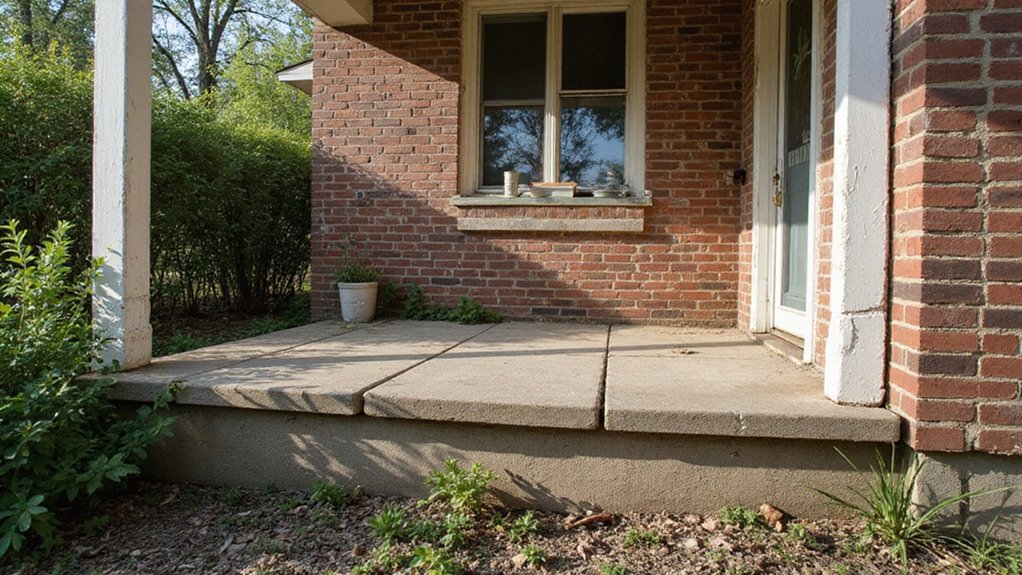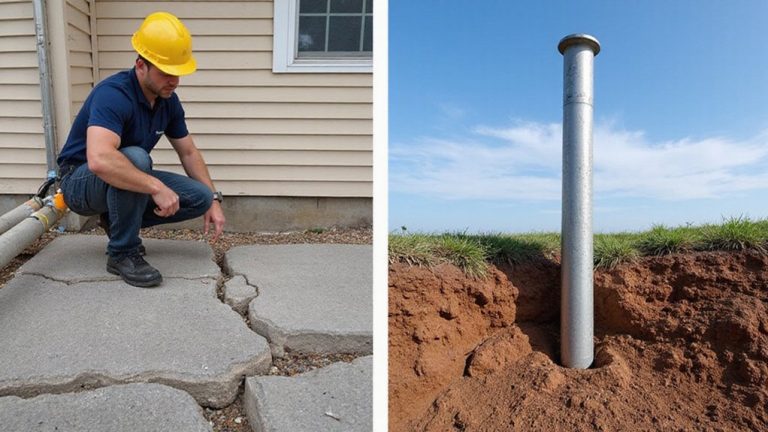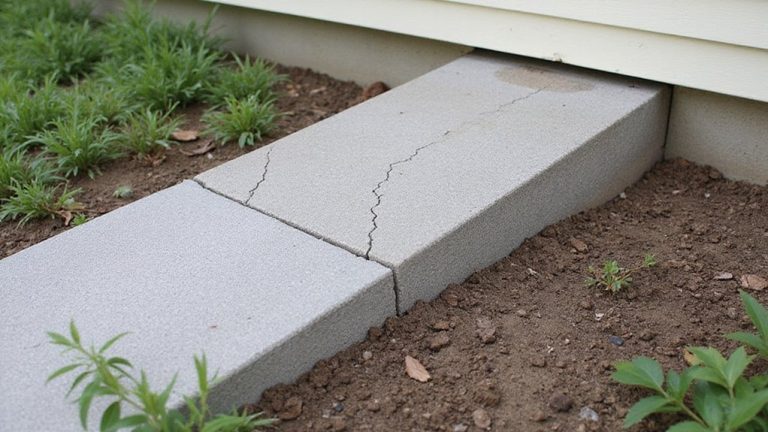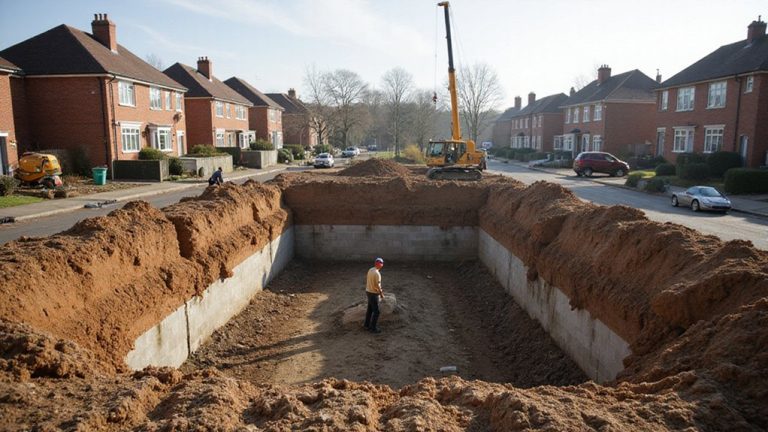Purchasing a home in Cleveland can be an exciting prospect, but you’ll want to be cautious about potential foundation issues. These problems aren’t always visible to the untrained eye, and addressing them later can prove costly. By learning to identify the signs of foundation trouble, you’ll be better equipped to make an informed decision that protects your investment. From cracks and settling to drainage concerns and uneven floors, there are several red flags to watch for during the home-buying process.
Common Foundation Issues in Cleveland Homes
As a homeowner in Cleveland, you may encounter various foundation issues that can impact the structural integrity of your home. One common problem is sinking soil, where the ground beneath your foundation slowly settles, causing your home to sink. This can lead to cracks, uneven floors, and doors and windows that no longer function properly.
Unstable footings, the concrete supports that hold up your foundation, can also cause problems if they aren’t properly installed or become compromised over time. Identifying these foundation issues early can help you address them before they escalate into more significant and costly repairs. Poor soil conditions can lead to serious structural damage if not addressed promptly, potentially compromising the entire foundation of your home.
Identifying Cracks and Settling
One of the most visible signs of foundation issues in your Cleveland home is the appearance of cracks, both inside and outside your property. When checking for foundation cracks, look for horizontal, vertical, or diagonal splits in the walls, floors, or foundation itself. These cracks can indicate that your home’s foundation is settling or shifting. Horizontal wall cracks can be particularly concerning, as they often signal serious structural problems like wall bowing or potential foundation failure. Pay close attention to the size and pattern of the cracks – wider, more jagged cracks typically signify more serious problems. Identifying signs of settling, like uneven floors or doors and windows that don’t close properly, can also point to foundation troubles.
Evaluating Drainage and Grading
Proper drainage and grading around your Cleveland home are critical for preserving a stable foundation. You’ll want to monitor surface runoff during heavy rain to guarantee water isn’t accumulating near your home’s perimeter.
Check the terrain’s slope – it should gently direct water away from your foundation. Avoid a flat or concave grade, which can channel water towards your home. If you notice cracks, uneven floors, or other issues, poor drainage could be the culprit. Addressing these problems early can prevent costly foundation repairs down the line. Maintaining proper drainage and grading is a wise investment for Cleveland homeowners.
Inspecting for Uneven Floors
If your Cleveland home has uneven floors, it could be an early indicator of foundation troubles. Carefully inspecting your floors for levelness is paramount in identifying potential foundation issues.
Start by walking through each room, using a level to check for any uneven surfaces. Floors that slope or have noticeable dips could signal foundation problems that require professional evaluation. Identifying these irregularities early on can help you make an informed decision about the home’s condition and potential repair costs.
With a keen eye for detail, you can spot these warning signs and take the necessary steps to protect your investment.
Recognizing Sticking Doors and Windows
In addition to uneven floors, sticking doors and windows can also indicate underlying foundation troubles in your Cleveland home. Pay close attention to any warped door or window frames, as well as misaligned hinges – these are telltale signs that the foundation has shifted.
When doors and windows no longer open and close smoothly, it’s a clear sign that the foundation has started to fail. Addressing these issues quickly is vital to prevent further damage and maintain the structural integrity of your home. Recognizing these problems early can save you from costly repairs down the line.
Detecting Basement Moisture and Leaks
Noticing damp or musty smells in your basement can hint at underlying moisture issues. Carefully checking for water stains on walls and floors is key to detecting any leaks.
Watch for signs of a malfunctioning sump pump, like pooling water or the pump running continuously. Monitor the sump pump’s operation during heavy rains to confirm it’s effectively removing groundwater.
Address any moisture problems promptly, as they can lead to mold growth and weaken your home’s foundation over time. Catching these issues early can save you from costly repairs down the line.
Understanding Soil Conditions in Cleveland
Understanding the soil conditions in your Cleveland home is essential, as the type and quality of soil can greatly impact your foundation’s stability.
Cleveland’s soil composition varies markedly, ranging from dense clay to loose sandy loam. Local climate patterns, including frequent freeze-thaw cycles and heavy rainfall, can exacerbate soil-related foundation issues.
Pay close attention to signs like uneven floors, cracks in walls or exterior, and sticking windows or doors, as these may indicate underlying soil problems. Consulting a professional inspector can help you identify soil-related foundation concerns and develop appropriate remediation strategies to protect your investment.
Hiring a Professional Foundation Inspector
If you’ve noticed worrying signs like sloping floors or cracks in your Cleveland home’s walls, it’s wise to hire a professional foundation inspector. They’ll thoroughly check the history of your home’s foundation, identify any issues, and provide an estimate for necessary repairs.
This evaluation is critical, as foundation problems can be costly to fix. The inspector will assess the severity of the damage and recommend the best course of action, helping you make an informed decision about whether to proceed with the purchase. Their proficiency can give you peace of mind and guide you towards a sound investment.
Frequently Asked Questions
How Much Does Foundation Repair Typically Cost in Cleveland?
The average foundation repair cost in Cleveland can range from $3,000 to $15,000, depending on the extent of the damage. There are potential financing options, like home equity loans or contractor payment plans, to help cover the costs.
Can I Do Foundation Repairs Myself or Do I Need a Contractor?
DIY foundation repairs pose serious challenges, so it’s best to rely on professional proficiency. They have the tools, skills, and experience to tackle foundation issues safely and effectively, ensuring your home’s stability and your peace of mind.
How Long Does a Foundation Repair Project Usually Take to Complete?
Foundation repair projects typically take 2-4 weeks to complete, depending on the scope. The inspection timeline can take 1-2 days, while the actual construction timeline is usually 1-3 weeks. You’ll need a contractor to handle this properly.
Will Homeowner’s Insurance Cover the Cost of Foundation Repairs?
Your insurance policy may cover foundation repairs if it’s deemed a covered loss, but a professional inspection’s recommendation is indispensable. Most policies won’t pay for preventative maintenance or gradual deterioration.
What Are the Common Warning Signs of Foundation Issues in Older Homes?
Cracks in walls, uneven floors, and drainage issues can indicate foundation problems that compromise a home’s structural integrity. Pay close attention to these warning signs to safeguard you’re making a prudent investment.



